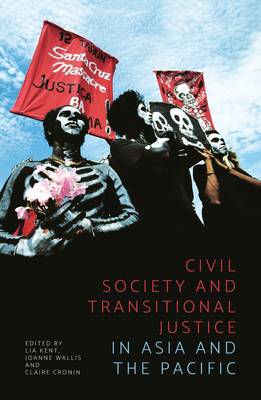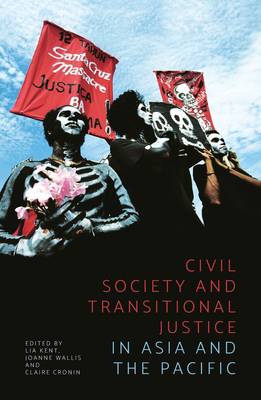
Bedankt voor het vertrouwen het afgelopen jaar! Om jou te bedanken bieden we GRATIS verzending (in België) aan op alles gedurende de hele maand januari.
- Afhalen na 1 uur in een winkel met voorraad
- Gratis thuislevering in België vanaf € 30
- Ruim aanbod met 7 miljoen producten
Bedankt voor het vertrouwen het afgelopen jaar! Om jou te bedanken bieden we GRATIS verzending (in België) aan op alles gedurende de hele maand januari.
- Afhalen na 1 uur in een winkel met voorraad
- Gratis thuislevering in België vanaf € 30
- Ruim aanbod met 7 miljoen producten
Zoeken
Civil Society and Transitional Justice in Asia and the Pacific
€ 55,45
+ 110 punten
Omschrijving
Over the last two decades, civil society has helped catalyse responses to the legacies of violent conflicts and oppressive political regimes in Asia and the Pacific. Civil society has advocated for the establishment of criminal trials and truth commissions, monitored their operations and pushed for take-up of their recommendations. It has also initiated community-based transitional justice responses. Yet, there has been little in-depth examination of the breadth and diversity of these roles. This book addresses this gap by analysing the heterogeneity of civil society transitional justice activity in Asia and the Pacific. Based upon empirically grounded case studies of Timor-Leste, Indonesia, Cambodia, Myanmar, Bougainville, Solomon Islands and Fiji, this book illustrates that civil society actors can have different - and sometimes competing - priorities, resources and approaches to transitional justice. Their work is also underpinned by diverse understandings of 'justice'. By reflecting on the richness of this activity, this book advances contemporary debates about transitional justice and civil society. It will also be a valuable resource for scholars and practitioners working on Asia and the Pacific.
Alleen bij Standaard Boekhandel
+ 110 punten op je klantenkaart van Standaard Boekhandel
Beoordelingen
We publiceren alleen reviews die voldoen aan de voorwaarden voor reviews. Bekijk onze voorwaarden voor reviews.









